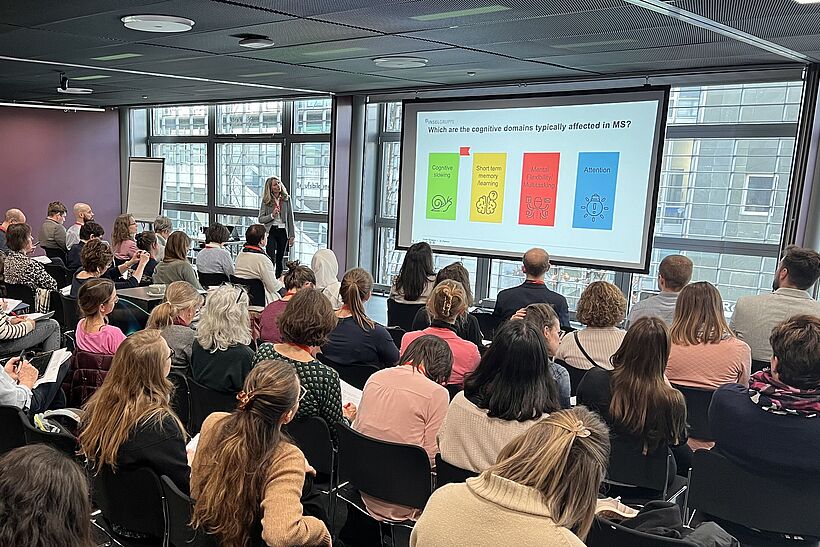Der Medizinisch-wissenschaftliche Beirat der MS-Gesellschaft (MSAB) publiziert Guidelines und Stellungnahmen zu verschiedenen medizinischen Themen. Diese Publikationen richten sich an Fachpersonen und werden in ihrer jeweiligen Sprache aufgeschaltet.
Guidelines für Fachpersonen
Publikationen des Medizinisch-wissenschaftlichen Beirats

Management of Acute Demyelinating Attacks in the Pediatric Population: A Swiss Consensus Statement
Abstract
Background and methods: Acquired demyelinating syndromes (ADS) encompass distinct entities and occur in approximately 1/100,000 children. While the use of high dose intravenous corticosteroids is well-established, agreement on steroid taper and type of second line therapy is lacking. A comprehensive, unified and standardized treatment approach is crucial in the management of patients with rare diseases. Therefore, this study performed from July 2018 to June 2020 aimed at developing a national consensus on the management of ADS in the pediatric population using the Delphi approach. Consensus was defined as agreement in >75%. Designated Neuropediatricians with an expertise in the management of pediatric neuroinflammatory diseases in all university and cantonal hospitals of Switzerland were included. The response rate was 100%. Results: High-dose i.v. methylprednisolone (20–30 mg/kg/die for 5 days) is the first line treatment irrespective of the distinct entity of the ADS. An oral steroid taper is recommended in acute demyelinating encephalomyelitis (ADEM) and in neuromyelitis optica spectrum disorder (NMO-SD). However, in the latter more in the sense of bridging. The choice of second line treatment depends on the entity of ADS: in optic neuritis (ON) and ADS due to relapsing remitting multiple sclerosis, first line treatment should be repeated, whereas plasma exchange is recommended in NMO-SD, ADEM and transverse myelitis. Conclusions: A national guideline allowing for a more unified approach in the management of pediatric ADS will enhance future research in this field, making data more comparable. The definition of inadequate treatment response to first line therapy remains a challenge and requires future research.
Besonderheiten der Immuntherapie der Multiplen Sklerose in der Schweiz: Update
Zusammenfassung
Hier präsentieren wir eine Kurzfassung der kürzlich in englischer Sprache veröffentlichten überarbeiteten Empfehlungen mit Daten zu neu zugelassenen Medikamenten und neuen Sicherheitsaspekten, auch in Bezug auf das Risiko einer COVID-19-Infektion und der Impfung gegen COVID-19.
Specific Aspects of Immunotherapy for Multiple Sclerosis in Switzerland — A Structured Commentary, Update 2022
Abstract
Multiple sclerosis (MS), particularly relapsing MS (RMS), has become a treatable disease in recent decades, and immunotherapies are now able to influence long-term disease course. A wide range of disease-modifying drugs are available, which makes the choice of therapy in individual cases considerably more complex. Due to specific regulatory aspects (partly diverging approvals by Swissmedic compared to the European Medicines Agency (EMA), and an independent evaluation process for the Federal Office of Public Health (FOPH) specialities list (SL)), we issued a consensus recommendation regarding specific aspects of immunotherapy for MS in Switzerland in 2019. Here, we present revised recommendations with an update on newly approved drugs and new safety aspects, also in reference to the risk of COVID-19 infection and vaccination.







